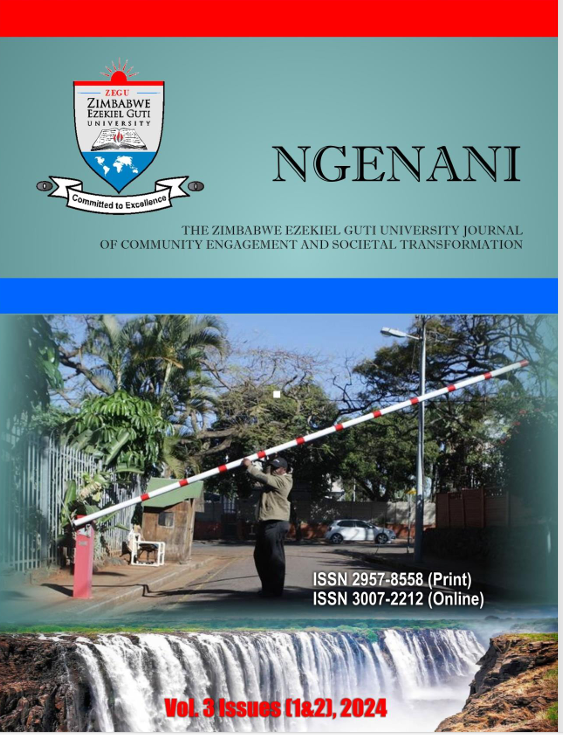Reflecting On Non-Governmental Organisations’ Action in Addressing Rural Food Security in Mbire District, the Zambezi Valley, Zimbabwe
DOI:
https://doi.org/10.71458/wyeb7y72Keywords:
food security, vulnerability, resilience, climate-change, human securityAbstract
Food insecurity has plagued many people throughout the world especially in drought- prone zones. Humanity relies on agriculture production for food security; however, many factors lead to the downgrading food security especially in rural areas. This study provides an analysis through in-depth engagement with empirical evidence and expose the multi-dimensions of food insecurity in Mbire District where the Lower Guruve Development Association and World Vision International embark on rural food security programming and projects in that part of the Zambezi valley. Mbire District is endowed with conditions that are conducive for food insecurity inclusive of climate change, floods, excessive heat, little rainfall and wandering wild that destructs crops. Guided by the theory of climate change diplomacy and the qualitative research approach, the study answered four research questions that are: What were the support services provided by World Vision and Lower Guruve Development Association to buttress rural food security? What were the impacts of nongovernmental organisations in Mbire District on rural food security? What were the challenges faced by NGOs in trying to support rural food security? What were the strategies used to reduce rural food security in Mbire? The study recommends measures that can be put in place to reduce incidents brought about by climate change, floods, heat, violent storms and serious winds. The study also recommends the continuation of support on rural food security from other local NGOs, the government and the international at large.




